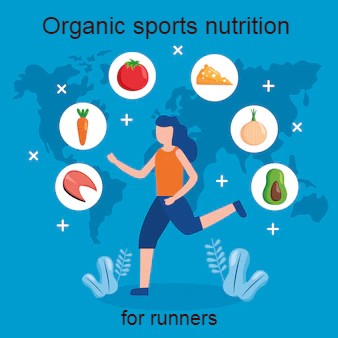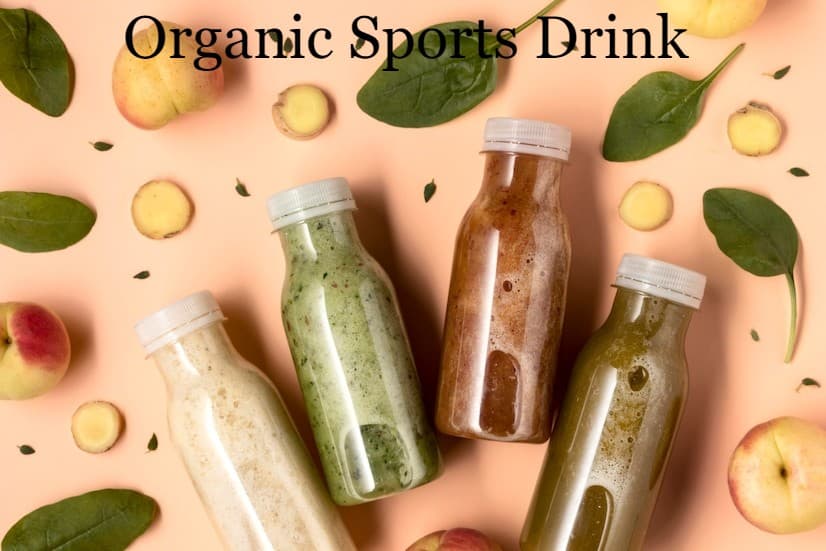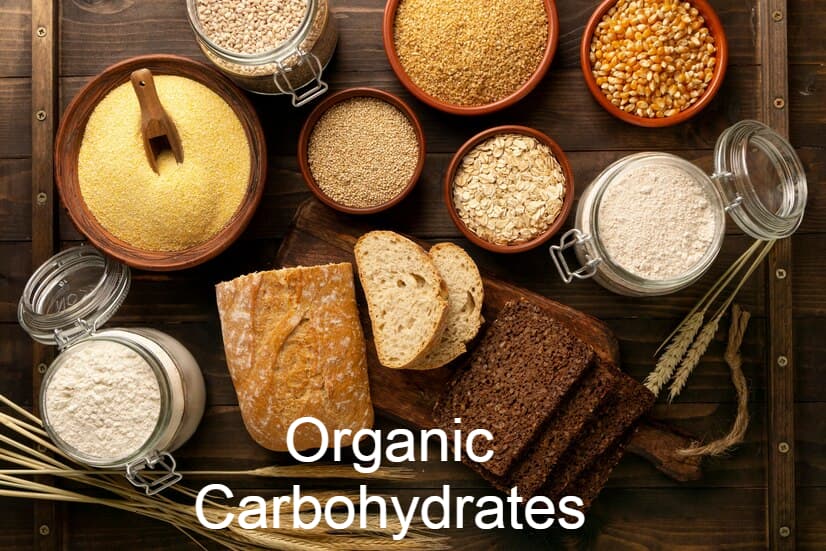Organic vitamin D supplements
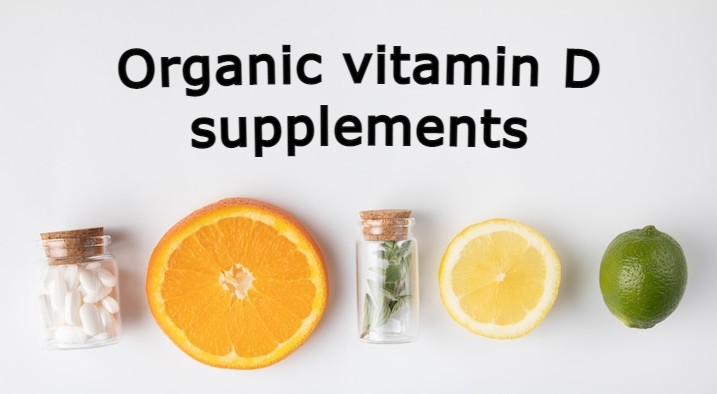
As the warm rays of the sun gently caress your skin, you can’t help but feel the invigorating embrace of nature. It’s a feeling that transcends mere physical warmth; it nourishes your soul and uplifts your spirits. And yet, in our modern, fast-paced lives, we often find ourselves confined to indoor spaces, deprived of this vital connection with the sun. But fear not, for there is a solution that can bring the sunshine back into your life – organic vitamin D supplements. Join me on a journey as we explore the incredible benefits of these natural wonders, the science behind their potency, and how they can transform your health and well-being. So, sit back, relax, and allow me to be your guide through this enlightening exploration. Read on to the end of my blog to uncover the secrets of harnessing the power of organic vitamin D supplements and discover a brighter, healthier you.
| Benefit | Description |
| Immune Support | Enhances immune system function |
| Bone Health | Supports strong and healthy bones |
| Mood Enhancement | Improves mood and mental well-being |
| Natural Ingredients | Derived from organic plant sources |
| Chemical-Free | Free from harmful chemicals and pesticides |
| Convenient | Easy-to-use and available as capsules or drops |
What is Vitamin D?
Vitamin D is a fat-soluble vitamin that plays a critical role in maintaining healthy bones, teeth, and muscles. It also helps regulate immune function and cell growth, making it an essential nutrient for overall health. Vitamin D is unique in that it can be synthesized by the body when the skin is exposed to sunlight. However, many people do not get enough vitamin D from sunlight alone, especially those who live in northern latitudes or spend most of their time indoors.
How Does Vitamin D Work in the Body?
When vitamin D is synthesized in the skin or ingested from food or supplements, it undergoes a series of chemical reactions in the liver and kidneys to become activated. This active form of vitamin D, called calcitriol, plays a crucial role in regulating calcium and phosphorus absorption in the intestines and kidneys. It also helps maintain healthy bones by stimulating bone mineralization and inhibiting bone resorption.
Why Choose Organic Vitamin D Supplements?
Organic vitamin D supplements are made from natural sources, such as mushrooms or lichen, and do not contain synthetic ingredients. This is important for many people who prefer to use products that are free from artificial additives and chemicals. Organic supplements are also often produced using sustainable and environmentally friendly practices, which can be a factor for those who are concerned about the impact of their choices on the planet.
Types of Organic Vitamin D Supplements
There are two main types of organic vitamin D supplements: vitamin D2 and vitamin D3. Vitamin D2, also known as ergocalciferol, is derived from plants and fungi, while vitamin D3, also known as cholecalciferol, is synthesized from cholesterol in the skin of animals, including humans. Both forms of vitamin D can be effective in raising blood levels of vitamin D, but some studies suggest that vitamin D3 may be more effective at maintaining these levels over time.
How to Choose the Right Organic Vitamin D Supplement
When choosing an organic vitamin D supplement, there are a few things to consider. First, look for a high-quality supplement that has been third-party tested for purity and potency. This will ensure that you are getting a product that contains what it claims and is free from contaminants. Second, consider the dosage and form of the supplement. Vitamin D supplements come in various strengths and forms, such as tablets, capsules, and drops. Finally, consider any other dietary restrictions or preferences you may have, such as vegetarian or gluten-free options.
Top 5 Best Organic vitamin D supplements
Vitamin D3 5000 IU
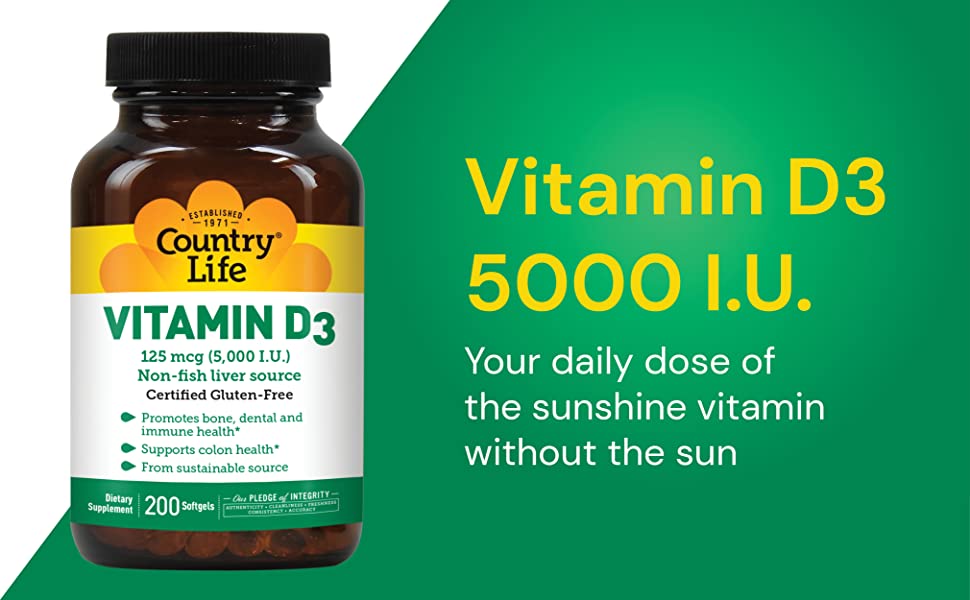
Supports Healthy Bones
- Your daily dose of the sunshine vitamin without the sun
- Vitamin D3 also supports colon and immune health
- Simply take 1 softgel daily with food for overall health and wellness
- Certified gluten-free and contains no yeast
- We only use ethically sourced ingredients in their purest forms
Vitamin D Gummies for Kids&Adults
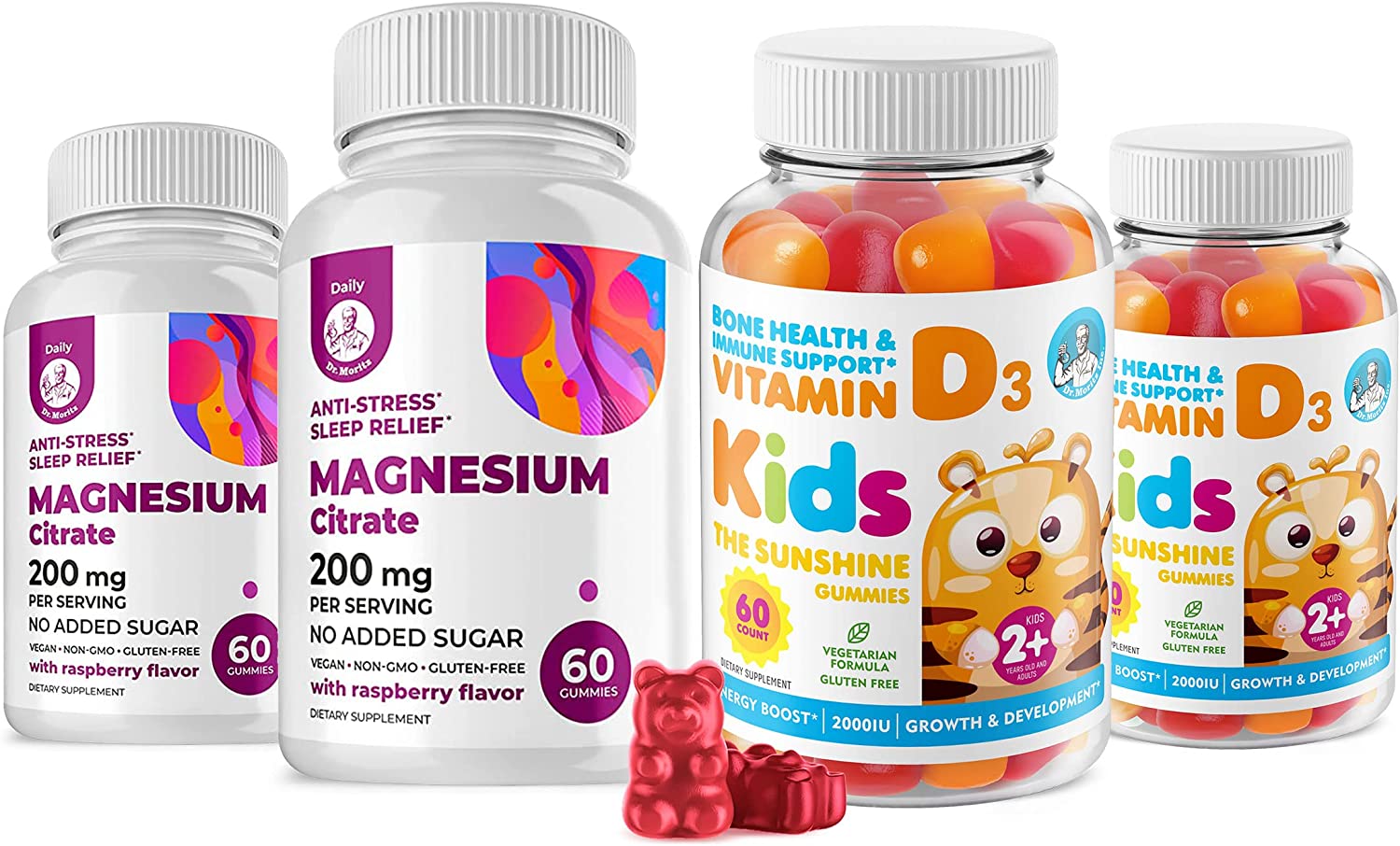
Natural Vitamin D3 Supplements
- Year-Round Immune Support
- Supports healthy sleep
- Essential Vitamin for Overall Health
- Sugar free
- All-Natural Ingredients That Work
Superior Source Vitamin D3
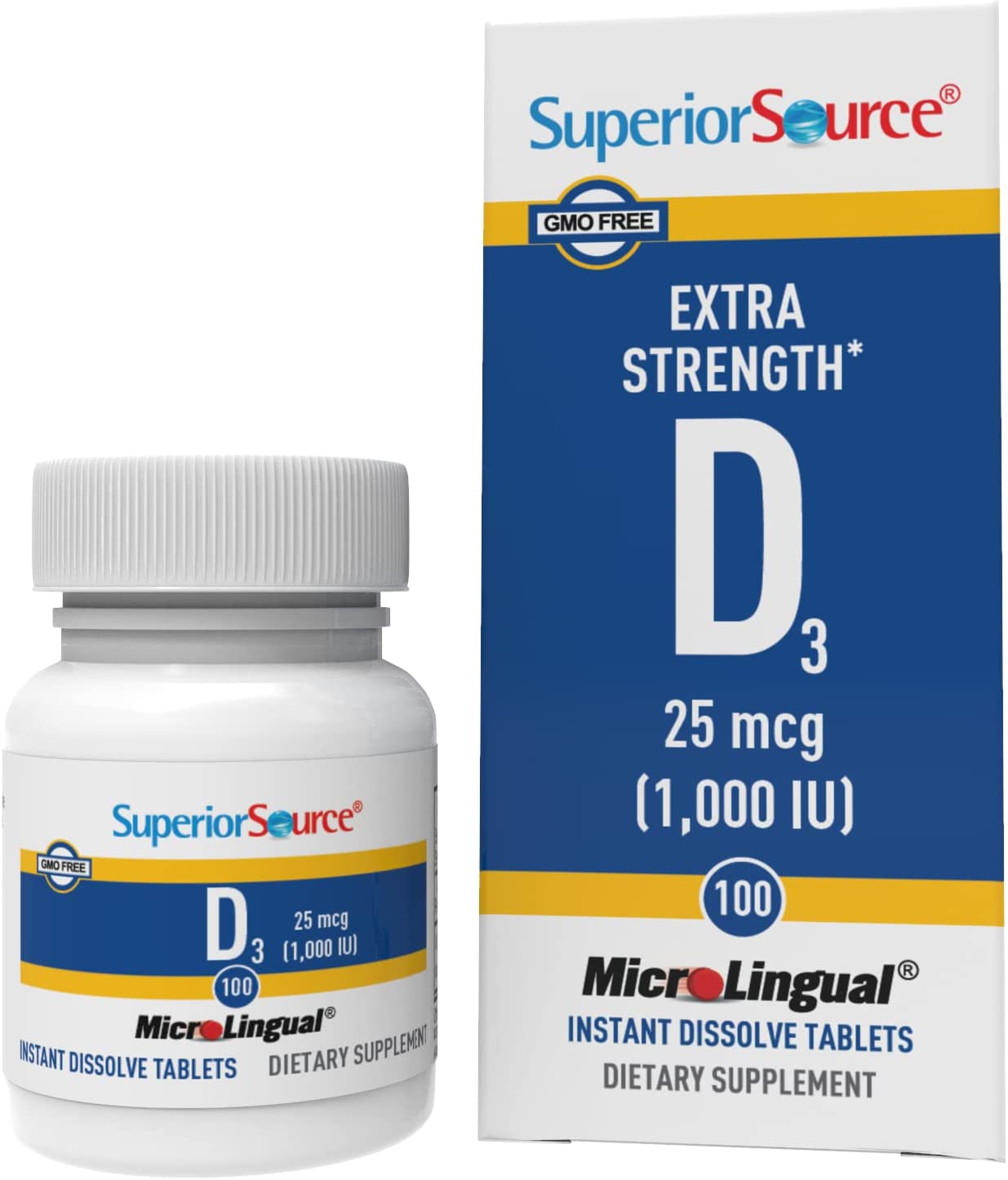
Under The Tongue Quick
- MICROLINGUAL VITAMINS Vitamin D melts
- Take anywhere, anytime, no water necessary, no large pills to swallow
- Tiny tablets, no pills to swallow
- Less is more, our tablets contain the active nutrients, plus only pure, clean, and natural “other ingredients
Garden of Life Vitamin D3 Liquid 1000
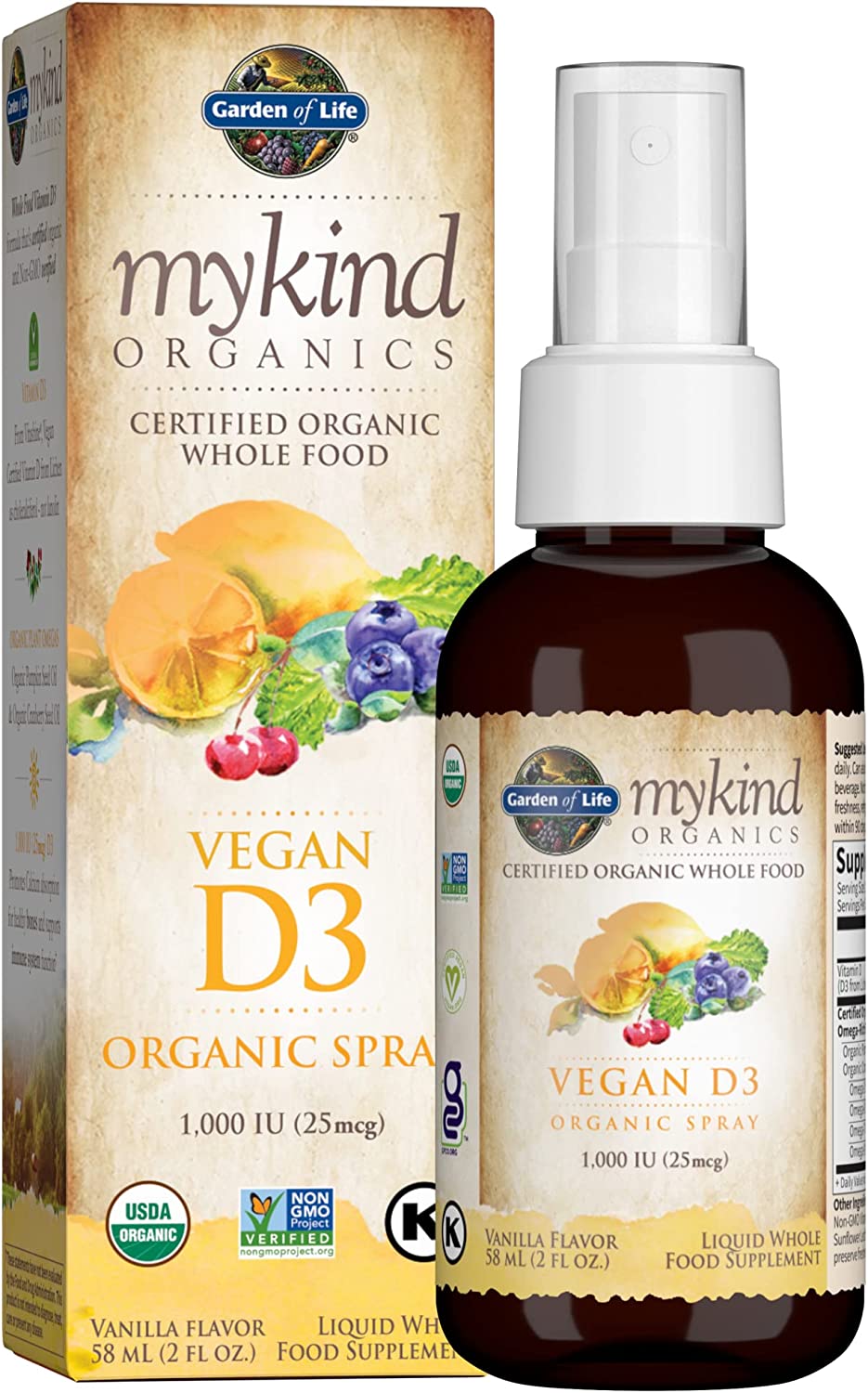
Sub Title
- IMMUNE SYSTEM SUPPORT THAT SHINES
- D3 WE FOUND YOUR PERFECT MATCH
- HELLO LIQUID SUNSHINE
- Safety Information :As with any dietary supplement, consult your healthcare practitioner before using this product, especially if you are pregnant, nursing, giving product to children, anticipate surgery, take medication on a regular basis or are otherwise under medical supervision. Do not spray in eyes. Keep out of reach of children. Store in a cool, dry place. Do not use if safety seal is broken or missing.
High Potency Vitamin D3 10,000
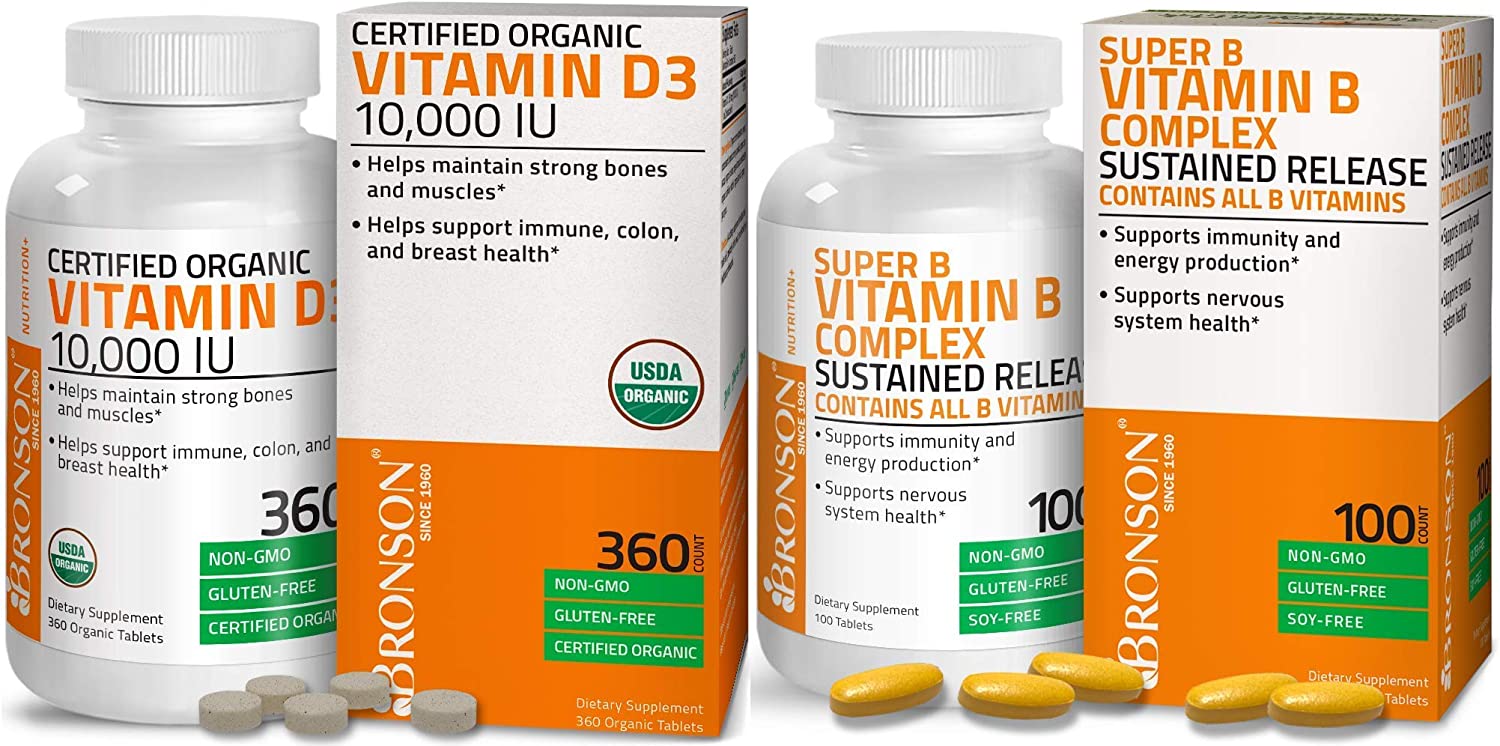
Organic Vitamin D Supplement
- USDA certified organic Vitamin D
- High Quality Laboratory Tested
- The sunshine vitamin
- Maximum Strength, Quality Formula
How to Take Organic Vitamin D Supplements
To get the most benefit from your organic vitamin D supplements, it’s important to take them as directed. The recommended daily intake of vitamin D varies depending on your age, health, and other factors. It’s important to consult with a healthcare provider to determine the right dosage for you. Some supplements may need to be taken with food or at a specific time of day to optimize absorption. It’s also important to be consistent with your supplement regimen and not to exceed the recommended dose.
The Benefits of Vitamin D Supplements
While it’s possible to obtain vitamin D through exposure to sunlight and certain foods, many people don’t get enough of this crucial nutrient. This is especially true for those who live in areas with limited sunlight, have darker skin, or spend most of their time indoors. Vitamin D deficiency has been linked to a range of health problems, including osteoporosis, cardiovascular disease, and some types of cancer. Organic vitamin D supplements can help to fill this gap and provide the body with the nutrients it needs to function properly.
Is there such thing as organic vitamin D?
Vitamin D is actually a hormone that’s produced in the body when our skin is exposed to sunlight. However, there are certain foods that are rich in vitamin D, such as fatty fish like salmon and tuna, egg yolks, and fortified foods like milk and cereal.
When it comes to buying vitamin D supplements, you might see some products labeled as “organic” or “natural,” but these terms don’t necessarily mean much in the context of vitamins. What you really want to look for is a high-quality supplement that contains vitamin D in the form of D3 (also known as cholecalciferol), which is the most effective type of vitamin D for raising blood levels.
Of course, it’s always a good idea to talk to your doctor or a registered dietitian before starting any new supplement regimen. They can help you determine the right dosage and make sure that you’re getting all the nutrients you need for optimal health.
Does vitamin D need to be organic?
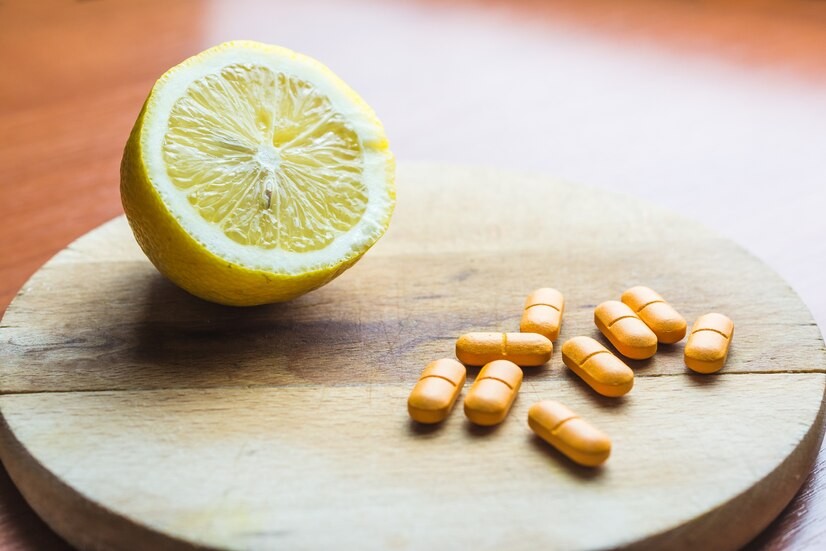
no, vitamin D does not need to be organic. In fact, vitamin D is a chemical compound that has a specific molecular structure, regardless of whether it is obtained from organic or inorganic sources.
However, it is worth noting that the best dietary sources of vitamin D tend to be organic in nature. For example, fatty fish like salmon and tuna, as well as egg yolks, are natural sources of vitamin D that are often recommended by health experts.
So, in summary, vitamin D itself does not need to be organic, but obtaining vitamin D from natural, organic sources may be beneficial for overall health and wellness.
Which vitamin D is not synthetic?
When it comes to vitamin D, there are two main forms: vitamin D2 (ergocalciferol) and vitamin D3 (cholecalciferol). Vitamin D2 is typically obtained from plant sources, while vitamin D3 is synthesized in the skin when it is exposed to sunlight and can also be obtained from animal sources such as fatty fish and egg yolks.
Both vitamin D2 and vitamin D3 can be synthesized in a laboratory setting to create synthetic versions of the vitamins. However, natural sources of vitamin D, such as fatty fish and egg yolks, contain vitamin D3 in its natural form.
So, vitamin D3 is the form of vitamin D that is not synthetic and can be found in natural sources such as fatty fish and egg yolks. However, it is worth noting that vitamin D2 can also be obtained from natural, plant-based sources.
Natural Food Sources of Vitamin D
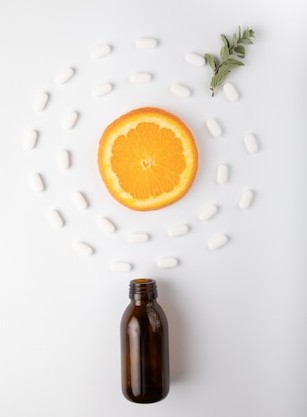
Fatty fish
Fatty fish like salmon, tuna, and mackerel are some of the best natural sources of vitamin D. These fish are not only rich in this essential nutrient, but they also provide many other health benefits. In addition to being high in protein, fatty fish are also a great source of omega-3 fatty acids, which are important for heart health and brain function. Salmon, in particular, is a popular choice because it can be prepared in many different ways and has a mild flavor that appeals to many people.
Beef liver
Beef liver is another natural source of vitamin D that can be easily incorporated into a healthy diet. This organ meat is rich in a variety of nutrients, including iron, zinc, and vitamin A, as well as vitamin D. While beef liver is not as commonly consumed as other meats, it can be prepared in many different ways, including as pate or in stews.
Egg yolks
Egg yolks are a great source of vitamin D, as well as many other essential nutrients. While egg yolks are often vilified for their cholesterol content, they are actually a nutritious and delicious addition to any meal. Eggs can be prepared in many different ways, such as scrambled, boiled, or fried, and are a versatile ingredient in many recipes.
Cheese
Cheese is a surprising source of vitamin D, as well as calcium and protein. While some varieties of cheese are higher in fat and calories than others, cheese can be a healthy addition to a balanced diet when consumed in moderation. Cheese can be added to salads, sandwiches, or used as a topping for pasta or pizza.
Mushrooms
Mushrooms are a unique source of vitamin D, as they are one of the few plant-based sources of this essential nutrient. While most mushrooms contain little to no vitamin D, some varieties are grown in ultraviolet light, which increases their vitamin D content. These mushrooms can be used in a variety of dishes, from stir-fries to soups, and are a great way to add more vitamin D to your diet if you follow a vegetarian or vegan lifestyle.
Fortified Foods
Milk and Dairy Products:
Milk and dairy products are commonly fortified with vitamin D to help people meet their daily requirements. While natural milk contains some vitamin D, fortified milk contains significantly higher amounts. This is especially important for people who do not get enough vitamin D from sunlight or other dietary sources. Milk is also a good source of calcium and other nutrients, making it an important part of a healthy diet.
Breakfast Cereals:
Many breakfast cereals are fortified with vitamin D to help people start their day off right. These cereals are a convenient way to get more vitamin D in your diet, especially if you do not regularly consume other sources of this essential nutrient. When choosing a fortified cereal, it’s important to read the label and select one that is low in sugar and high in fiber to ensure you’re making a healthy choice.
Orange Juice:
Orange juice is another popular food that is commonly fortified with vitamin D. While natural orange juice contains some vitamin D, fortified juice contains significantly higher amounts. This is a great way to get more vitamin D in your diet, especially if you don’t like the taste of other fortified foods. However, it’s important to choose a brand that is low in sugar and doesn’t contain any artificial additives or preservatives to ensure you’re making a healthy choice.
Conclusion
In conclusion, organic vitamin D supplements can be an effective way to support your overall health and wellbeing. Vitamin D is a crucial nutrient that plays a role in many processes in the body, and many people do not get enough from sunlight and food alone. Organic supplements offer a natural and sustainable option for those who want to ensure they are getting enough vitamin D without synthetic additives and chemicals.
When choosing an organic vitamin D supplement, it’s important to look for a high-quality product that has been third-party tested for purity and potency. Consider the dosage and form of the supplement and any dietary restrictions or preferences you may have. It’s also important to take the supplement as directed and to consult with a healthcare provider if you have any concerns.
Organic vitamin D supplements can support bone health, immune function, and overall wellbeing.
The recommended daily intake of vitamin D varies depending on your age, health, and other factors. Consult with a healthcare provider to determine the right dosage for you.
Some people can, but many people do not get enough vitamin D from these sources. Supplements can be a convenient and effective way to ensure you are meeting your daily needs.
There is no clear evidence that organic supplements are better than synthetic ones. However, some people prefer organic supplements because they are free from synthetic additives and chemicals.
Taking too much vitamin D can cause side effects, such as nausea, vomiting, and constipation. It’s important to follow the recommended dosage and consult with a healthcare provider if you have any concerns.
Table of contents
- What is Vitamin D?
- How Does Vitamin D Work in the Body?
- Why Choose Organic Vitamin D Supplements?
- Types of Organic Vitamin D Supplements
- How to Choose the Right Organic Vitamin D Supplement
- Top 5 Best Organic vitamin D supplements
- How to Take Organic Vitamin D Supplements
- The Benefits of Vitamin D Supplements
- Is there such thing as organic vitamin D?
- Does vitamin D need to be organic?
- Which vitamin D is not synthetic?
- Natural Food Sources of Vitamin D
- Fortified Foods
- Conclusion
Contents
- What is Vitamin D?
- How Does Vitamin D Work in the Body?
- Why Choose Organic Vitamin D Supplements?
- Types of Organic Vitamin D Supplements
- How to Choose the Right Organic Vitamin D Supplement
- Top 5 Best Organic vitamin D supplements
- How to Take Organic Vitamin D Supplements
- The Benefits of Vitamin D Supplements
- Is there such thing as organic vitamin D?
- Does vitamin D need to be organic?
- Which vitamin D is not synthetic?
- Natural Food Sources of Vitamin D
- Fortified Foods
- Conclusion
- Table of contents

